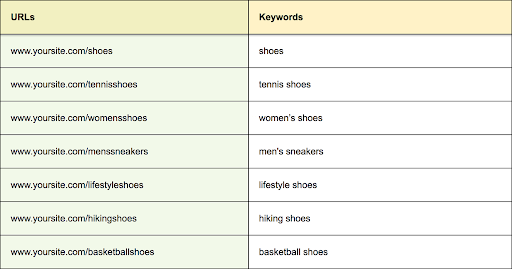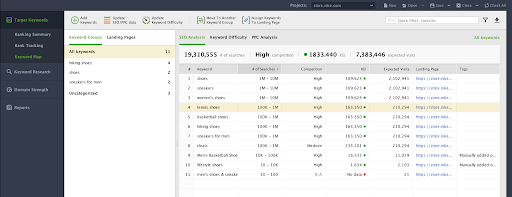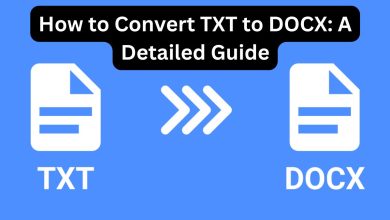
Do you have multiple pages ranking for the same keyword on your website?
That may appear to be a good thing.
After all, the more pages you have in search results, the more search users will see them, right?
Regrettably, this isn’t always the case.
Using the same term across multiple pages can have the opposite effect. You could end up doing more harm than good to your SEO for that keyword.
The reason is simple: when multiple pages rank for the same keyword, your pages are forced to compete with one another.
As a result, each page has a lower CTR, less authority, and lower conversion rates than a single consolidated page.
This is referred to as keyword cannibalization in SEO.
What Exactly Is Keyword Cannibalism?
Keyword cannibalization is named after the fact that you are “cannibalizing” your own results by dividing CTR, links, content, and (often) conversions between two pages that should be one.
When you do this, you are not demonstrating the breadth or depth of your knowledge to Google. You’re also not increasing your site’s authority for that query.
Instead, you’re asking Google to compare your pages and determine which ones best match the matching keywords.
Assume that your website sells shoes and that [shoes] are the only keyword you target. You’re basically telling Google that every page is about shoes, regardless of whether they’re hiking shoes, tennis shoes, sneakers, or anything else.
Instead of capitalizing on a plethora of valuable longer-tail keywords like women’s shoes, running shoes, and so on, you’re competing against yourself for a single keyword that may be too broad to have commercial intent.
Keyword Cannibalization Can Have 6 Negative Effects On Your SEO
Cannibalization of keywords can be disastrous for your SEO. Many people who are affected by keyword cannibalization aren’t even aware of the problem.
They may even be pleased that one page ranks fifth and sixth for their targeted keyword, not realizing that one authoritative page would most likely rank higher and convert better.
The practical implications are obvious. However, lost site traffic, queries that lead to the incorrect page, fluctuating SERP rankings, and ultimately lost sales may occur and are more difficult to detect.
Why?
Because…
You’re Undermining Your Page’s Authority
Instead of having a single highly authoritative page, you’re spreading your CTR across several moderately relevant pages.
You’ve effectively turned your pages into competitors, and you’re now competing for page views and SERP rankings.
Consider the situation from the perspective of a reader looking for a new book on Amazon. Would you prefer a single, in-depth book on a subject that demonstrated your expertise?
Or would you rather have two or less complete books about a topic, each of which leaves you wanting more information?
You’re reducing the effectiveness of your links and anchor text
Backlinks that could have gone to a single consolidated source of information are now spread across two (or more) pages.
The outreach efforts expended on acquiring 10 links for one page and 15 links for another could have been used to acquire 25 links for a single better-performing page.
A comprehensive, in-depth page is also more likely to be linked to than a lighter, less comprehensive piece.
Similarly, your anchor text and internal links direct visitors to a variety of different pages rather than a single authoritative page on the subject.
Google May Devalue More Relevant Page Keywords are one of the primary ways we assist Google in understanding what our pages are about.
If all of your keywords are the same, Google attempts to determine which page is the best fit – and if your content is too similar, it may be incorrect.
Assume you have two pages that rank for the same keyword. If the page with the highest conversion rate ranks lower, you may be missing out on high-value, converting traffic.
You’re wasting Crawl Budget
The number of times a search engine spider crawls your website in a given time period is referred to as your crawl budget.
Having multiple pages devoted to the same keyword results in the crawling and indexing of unnecessary pages.
Small sites are unlikely to notice a difference or have to worry about their crawl budget, but large eCommerce sites or vendors with a large number of products may.
It’s an indication of poor page quality
Multiple pages targeting the same keyword indicate to your users that your content is likely overstressed. It also indicates to Google that your content on each page may not match your keywords.
Your conversion rate will suffer as a result
Eventually, one of your pages will outperform the others.
Instead of directing new visitors to that page and making it the most authoritative page possible, you’re losing potential leads when they land on pages that are less relevant.
How to Recognize Keyword Cannibalism
Fortunately, once you’ve identified the issue, correcting keyword cannibalization is simple.
It is as simple as creating a keyword matrix to detect keyword cannibalization.
Simply create a spreadsheet that contains a list of all of your site’s important URLs and the keywords associated with them.
If your website sells shoes, for example, your spreadsheet might look like this:

You can also use a keyword mapping tool, which may look like this:

After you’ve listed your URLs and keywords, go through the list and look for any duplicates.
If you find any, especially on core pages, you’re most likely suffering from keyword cannibalization.
It’s now time to fix those pages!
Keyword cannibalization can occur even if the meta information in your title tags appears to target the same keyword, so double-check those as well.
If you’re using a rank tracking tool, you might also want to use this time to look for thin content and keywords that were accidentally applied to the wrong page.
It’s time to give your website some TLC.
How to Resolve Keyword Cannibalization
The solution to keyword cannibalization is dependent on the cause of the problem.
Most of the time, the problem is simply one of organization. However, in particularly difficult cases, you may need to use 301 redirects or create new landing pages.
Here are five alternatives.
1. Reorganize Your Website
The most straightforward solution is to convert your most authoritative page into a landing page that links to other unique variations that fall under the umbrella of your targeted keywords.
Returning to our shoe example, it might make sense to make “shoes” the canonical source page and link all more specific variations back to it.
2. Develop New Landing Pages
Alternatively, you may lack a landing page that aggregates all of your product pages into a single location.
In this case, you’d benefit from creating a distinct landing page to serve as your authoritative source page, from which you’d link to all of your variations.
In our example, we could make a page for “hiking shoes” and another for “men’s sneakers.”
With your consolidated pages, you should be able to target both broad keyword terms and long-tail keywords on your variations.
3. Organize Your Content
If your pages aren’t distinct enough to warrant multiple pages targeting the same keyword, consider combining them into one.
This is an opportunity to transform two underperforming pages into a more authoritative source. It could also help with thin content issues.
Begin by reviewing your analytics to see which pages perform best in terms of traffic, bounce rate, time on page, conversions, and so on. You may discover that one page receives the majority of traffic, but the other contains content that converts more users.
In this case, the goal could be to consolidate the converting copy content on the most trafficked page. Ideally, you’d be able to keep the same ranking while converting more traffic.
Another advantage of this strategy is that you won’t have to worry about your website being penalized for content that Google considers thin or cookie-cutter-like.
4. Discover New Keywords
Finally, if your website already has a diverse set of content-rich pages and the only problem is a poorly planned keyword strategy, perhaps all you need to do is find new keywords.
Just make sure your keywords accurately describe the content of your page. Will the content on each page that ranks for the target keyword satisfy a website visitor who searched for it?
If the answer is no, it’s time to conduct some keyword research.
Examining your pages in a spreadsheet with the following information can assist you in identifying better keyword opportunities for similar pages:
- Keywords and position.
- The URL of the page.
- Title and meta description for SEO.
- Count the words.
- Natural traffic.
- The rate of bouncing.
- Conversions.
This should help you identify pages that are targeting the same keywords.
You can then determine which pages are the most valuable, which can be consolidated, and which require new keywords.
Most of the time, you can use your keyword research tool to find the most relevant keywords for all of the pages you want to keep.
If you have two pages that are ranking well for a long-tail keyword, see if there is a related broad term that one of them could be focusing on to capture more traffic.
Once you’ve discovered that keyword, reoptimize it and update the details in your spreadsheet for future reference and performance tracking.
5. Make Use of 301 Redirects
While I generally recommend avoiding using too many 301 redirects (see my list of the 10 Most Harmful Mobile SEO Mistakes), they may be necessary if you already have multiple pages ranking for the same terms.
By linking less relevant pages to a single, more authoritative version, you can consolidate your cannibalized content.
However, keep in mind that this strategy is only appropriate for pages with similar content and those that match specific keyword queries.
Conclusion
Most cases of keyword cannibalization will be resolved by using one of these five solutions. Still, if you manage an eCommerce website, you should pay special attention to how your CMS separates products with different sizes and colors.
Some content management systems (CMS) generate separate pages for each product variation.
If your CMS organizes products in this manner, you should either use robots.txt or meta name=”robots” content=”noindex”> tags to prevent duplicate pages from being indexed, or you should use canonical URLs to consolidate link signals for the duplicate content.
Keyword cannibalization is more common than ever before.
Surprisingly, its victims are usually webmasters who understand the value of SEO for their business. Nonetheless, while they intend to optimize their site, they do not fully comprehend how to’speak’ Google’s language.
If your website is cannibalizing its target keywords, solutions aren’t difficult to find — and the damage isn’t permanent.
You can give your SEO a well-deserved boost with the right tools and a “can-do” attitude.
Need help with our free SEO tools? Try our free Keywords Suggestion Tool, Keyword Density Checker,
Keyword Position.
Learn more from SEO and read Top 42 SEO Writing Tips To Master A Combination Art.





One Comment